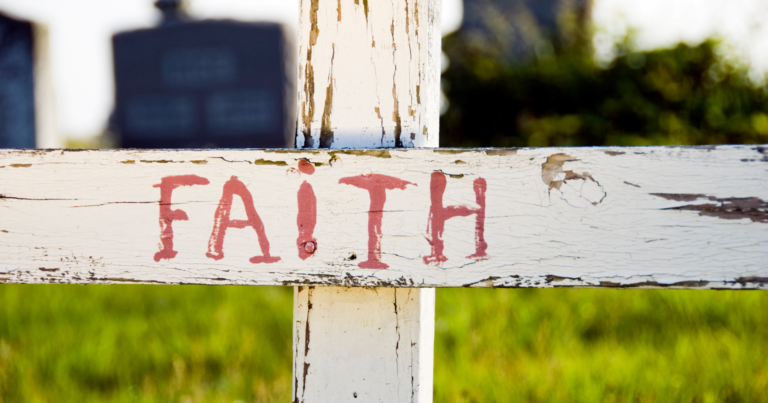Living a more religious life often boils down to making certain lifestyle changes. But, how do you know which changes to make and where to start?
Well, moving towards a more religious lifestyle is not about imposing strict rules on yourself, but rather about finding a path that connects you deeper with your faith.
I’ve found that there are nine key changes that can make a significant difference. And the great news? They’re all pretty simple and straightforward.
Here’s an introduction to these nine lifestyle changes that could help you live a more religious life.
1) Establish a daily prayer or meditation routine
Religious life often revolves around frequent communication with a higher power or inner self.
This is where the power of prayer or meditation comes into play.
Creating a routine where you dedicate specific time each day to prayer or meditation can transform your spiritual life. It’s not just about asking for things or expressing gratitude, it’s also about listening and seeking guidance.
Consider it a spiritual equivalent of keeping in touch with a close friend. The more often you communicate, the stronger your relationship becomes.
This is one lifestyle change that has proven to be beneficial for countless religious individuals. And it might just be the foundation you need for a more religious life.
And remember, it’s not about how long you pray or meditate; it’s about the consistency and sincerity of your practice.
2) Be charitable in your actions
For me, living a more religious life has always been about more than just personal spiritual practices. It’s about how I interact with the world around me.
One of the most significant changes I made was to integrate charity into my daily routine. I don’t mean just donating money, but also giving my time and effort to help others.
I remember one winter when I started volunteering at a local homeless shelter. It was humbling and eye-opening. I thought I was simply giving my time, but in the end, I received so much more from the experience.
It reminded me that charity is a cornerstone of many religions, and it’s more than just a nice thing to do. It’s a way of connecting with others, expressing empathy, and living out the values that my faith promotes.
This change not only deepened my own spiritual journey but also helped me bring positive change to others’ lives.
3) Engage in regular religious learning
Religious texts, be it the Bible, Quran, Torah, Bhagavad Gita, or others, are often seen as an essential guide to living a more religious life. However, simply owning these texts isn’t enough. The key is to engage with them regularly.
Did you know that in Judaism, there is a practice called Daf Yomi? It involves reading a page of the Talmud – one of the central texts in Jewish tradition – each day. Completing this cycle takes about seven and a half years!
Regularly reading and reflecting on your religious texts can deepen your understanding of your faith’s teachings and principles. It can guide your actions and decisions, helping you align your life more closely with your religious beliefs.
4) Surround yourself with like-minded individuals
When it comes to maintaining a lifestyle change, the company you keep can make a significant difference.
Surrounding yourself with people who share your religious beliefs and values can be incredibly supportive. They can provide guidance, encouragement, and understanding, especially during times when you may struggle with your commitments.
In many religions, community plays a crucial role. These communities or congregations provide a platform for shared worship, learning, and service. Being part of such a community can deepen your spiritual journey and provide a sense of belonging.
Remember, the goal isn’t to isolate yourself from differing beliefs but to have a supportive network that helps you live your faith more fully.
5) Incorporate religious symbols in your surroundings
Our environment has a significant impact on our mood, thoughts, and behaviors. Therefore, incorporating religious symbols in your surroundings can serve as a constant reminder of your faith and convictions.
This could involve setting up a small prayer corner at home, wearing a religious emblem, or even using religious-themed wallpaper on your phone or computer. These symbols can serve as gentle reminders throughout the day, helping you stay connected to your faith.
Bear in mind, it’s not about showcasing your religion to others but about creating a personal space that resonates with your spiritual journey.
6) Practice forgiveness and let go of grudges
At the heart of many religious teachings is the principle of forgiveness. It’s a simple yet profound act that can bring peace not only to others, but also to ourselves.
Holding onto anger and resentment can be like carrying a heavy burden. It can overshadow the joy and peace in our lives. But when we choose to forgive, we let go of this weight. We open up to healing and spiritual growth.
Forgiveness is not about forgetting or condoning wrong actions. It’s about releasing the pain associated with them. It’s a gentle acceptance that we are all human, capable of making mistakes, and deserving of forgiveness.
As you strive to live a more religious life, consider the power of forgiveness. Embrace its transformative potential. After all, in forgiving others, we often find that we are also forgiving ourselves.
7) Make time for self-reflection
In the hustle and bustle of daily life, it’s easy to lose sight of our spiritual journey. That’s why I’ve found that making time for self-reflection is crucial.
I remember a phase of my life where I felt disconnected from my faith. I was going about my daily routines, but something felt off. It wasn’t until I started setting aside quiet time each day for reflection that I began to understand what was missing.
During these quiet moments, I’d contemplate my actions, thoughts, and feelings. I’d ask myself if they were in alignment with my religious beliefs. This daily practice helped me reconnect with my faith. It made me more aware of my spiritual growth and the areas where I needed to put more effort.
Self-reflection can be a powerful tool in your religious journey. It allows you to assess where you are and where you want to go. It encourages you to live your faith more consciously and intentionally.
8) Live out your faith in daily actions
Living a more religious life isn’t just about rituals, prayers, or attending services. It’s also about the way you live your daily life.
Are you demonstrating kindness, compassion, honesty, and other values promoted by your faith? Are you making choices that reflect your beliefs?
Living out your faith in daily actions can make your religion more than just a belief system. It can transform it into a way of life. This can range from how you interact with others, to the decisions you make at work, to how you treat the environment.
Remember, every action, no matter how small, is an opportunity to express your faith. It’s about making your religion a lived experience, not just a set of beliefs.
9) Cultivate a personal relationship with your faith
Above all, living a more religious life is about cultivating a personal relationship with your faith. It’s not about following a set of rules blindly, but about understanding and embracing the teachings and values that resonate with you.
This relationship is unique to each individual. It’s shaped by your experiences, perspectives, and interpretations. It can evolve over time, growing deeper and more nuanced.
Your personal relationship with your faith can guide you through life’s challenges, provide comfort in times of distress, and inspire you to live a life aligned with your spiritual beliefs. It’s the foundation upon which a more religious life is built. Nurture it, cherish it, and let it guide you on your spiritual journey.
Final thoughts: It’s a journey, not a destination
The path to a more religious life is deeply personal and unique to each individual. It’s less about reaching a final destination and more about the journey itself.
This journey is often characterized by growth, reflection, and transformation. It can lead to profound insights about oneself and the world around us.
As we navigate this path, we come to understand that living a religious life goes beyond mere practices and rituals. It involves the integration of our beliefs into every aspect of our lives.
Remember the words of Mahatma Gandhi, “My religion is based on truth and non-violence. Truth is my God. Non-violence is the means of realizing Him.” This quote encapsulates the essence of a religious life – it’s about aligning our actions with our deepest convictions.
As you embark on this journey, be patient with yourself. Embrace the changes that resonate with you and let them guide you towards a deeper connection with your faith.
In the end, it’s not so much about ‘doing’ religion as it is about ‘being’ religious. And that comes from a place of authenticity, love, and commitment.













